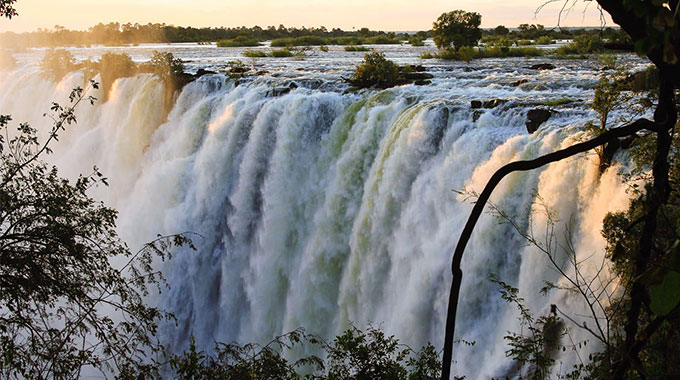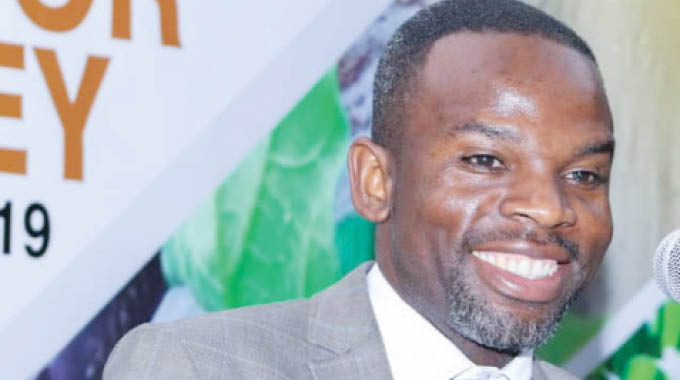Covid-19 pandemic: People’s lifestyles changed worldwide

Prince Dzingirayi, Norleen Munyeza and Douglas Musiringofa
THE Covid-19 pandemic has brought panic, shock and unprecedented threats to human survival worldwide.
The novel coronavirus has attracted unprecedented measures to curb its spread and severity. Covid-19 was first discovered in Wuhan, China at the end of 2019 and is causing critical challenges for public health worldwide.
The Covid-19 outbreak has rapidly evolved into a fast-moving global pandemic, with world updates produced on a daily basis.
The World Health Organisation (WHO) declared the outbreak to be a Public Health Emergency of International Concern on January 30, 2020. On March 11, 2020, the WHO declared Covid-19 a global pandemic.
Globally, the number of Covid-19 cases has reached more than seven million and killed close to a million.
The first confirmed case of Covid-19 infection in the African region was reported in Nigeria on February 28. By April 1, 43 of the 46 Sub-Saharan African countries had reported confirmed cases of Covid-19.
According to WHO, Africa as a region, has the world’s greatest concentration of least developed countries, fragile and conflict-affected states, morbidity, inadequate housing, and poor healthcare.
This is an indication that most African nationals are living in poverty and are likely to be more susceptible to Covid-19 infection, due to overcrowding, poor sanitation, food insecurity and under nutrition, lack of education and health literacy among others.
Previous studies have shown that pandemics have drastic psychosocial impacts, which eventually become more pervasive than the pandemic itself. Research shows that the psychological impact of quarantine is wide-ranging, substantial and can be long lasting.
Taking into consideration the current lockdown situation and Zimbabwe’s economy stamina, it has disrupted social support networks hence causing more harm than good.
The spread of covid-19 is accelerating rapidly in Zimbabwe and the psychological impact of Covid-19 is scant. The government responded positively by initially announcing a nationwide total lockdown for 21 days starting on March 30, which was later extended indefinitely as a measure to prevent and mitigate the spread of Covid-19. The directive restrictive measures by the government has caused anger, frustration, sadness, panic, anxiety and a high rise of domestic violence in different communities.
Culturally, Zimbabwe is a collective community in which the “being-ness” of individuals is defined by interaction. Therefore, the public social distance has affected the norms and values of Ubuntu.
Research indicates that pandemics such as the Covid-19 can reduce quality of life, economic productivity and paralyse social systems. In Zimbabwe, the first case was recorded in Victoria Falls, the tourist hub and cash cow for government revenue.
The Victoria Falls region has for the longest time also struggled with one of the highest HIV prevalence rates in the country. Having the first case recorded in Victoria Falls did not come as a surprise with the thousands of international arrivals the town has each day.
Victoria Falls remains one of the most vulnerable towns to be highly impacted by the pandemic with a population of over 40 000 people who all converge for shopping from two major supermarkets and one bus terminus. With an increasing shortage of basic food supplies, supermarkets are flooded with people queuing for basic commodities, which expose them to the danger of infection. Victoria Falls used to be a hive of activity ranging from craftwork, cultural dance groups, village tours, township tours and vending among others.
The Covid-19 lockdown and slowdown has pushed Victoria Falls into mucky-waters. Tourism is the engine that runs the town from service delivery, economic development, education and social welfare. The advent of the coronavirus pandemic has left Victoria Falls in a dire situation with thousands of people losing their jobs and source of livelihoods.
Covid-19 has caused panic and fear among the residents resulting in multiple effects such as the uncertainties with their livelihoods, not being able to work during isolation, fear of being dismissed from work, fear of being separated from loved ones, feelings of hopelessness, boredom, fear of death, loneliness and depression due to isolation.
According to WHO, the effects of Covid-19 differ according to nations, culture, and political stability and support structures among others. In Victoria Falls, Covid-19 has barred hope to the whole community, which before the pandemic was entirely dependent on tourism. The implementation of the lockdown, slowdown and physical public distance popularly known as “social distance” are measures to mitigate the transmission of the coronavirus pandemic. In line with the above these restrictive measures have had significant psychological impacts to the lives of people.
Covid-19 leaves immediate and long-term traces of psychological trauma in communities like Victoria Falls. The sudden cut of sources of survival to the indigenous people in Victoria Falls will lead to the ramification of psychological disorders which can vary from depression, anxiety, panic attacks, somatic symptoms, and post-traumatic stress disorder symptoms, to delirium, psychosis and even suicide.
To curb these problems, psychologists should play a herculean role in responding to Covid-19 in areas such as Victoria Falls.
Covid-19 is the business for psychologists as it demands critical psychological interventions and awareness. It is imperative to have psychologists significantly participate in the Task Force for Covid-19 as the pre and post frontline workforce so as to fight this long-drawn battle and secure success for the future.
According to research, psychological defense is one of the key pillars used in Singapore’s Total Defense strategy to maintain hope, trust and faith between the population and the government so as to ensure resilience during crisis.
The psychologist should be on the frontline promoting mental wellness and initiating psychological interventions for instance cognitive behaviour therapy (CBT) and mindfulness-based therapy (MBT). These therapies will respectively teach relaxation techniques to combat anxiety and depression and to enhance stress management, mitigate maladaptive coping skills of avoidance and self-blame.
In Victoria Falls, there is widespread fear of being tested and quarantined (institutionalised). Everything starts in the mind; therefore, psychological empowerment is the best approach to fight the spread of the novel coronavirus.
The Covid-19 pandemic is therefore a wake-up call for improving our weak health structures and related institutional capacity as well as disaster preparedness. This pandemic is a test for national health sector governance.
On a traditional approach, there is need to respect our indigenous knowledge systems which cement our cultural values of ubuntu. There is need to rewire our indigenous health systems. Relying only on the allopathic approach is not enough, our ancestors used to have indigenous practices of fighting viruses such as influenza. The holistic approach to fight the epidemic is the best strategy to win the war against Covid-19. Behavior is a reflection of mental processes.
Prince Dzingirayi and Norleen Munyeza are lecturers at the Women’s University in Africa Psychology Department while Douglas Musiringofa is the director of Unica.










Comments